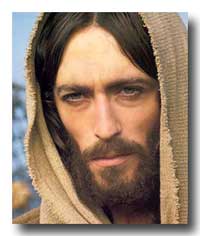
So, did Jesus’ answer about the greatest commandment meet with their approval? One might guess so, in that they didn’t seem to offer any objection. Then he turns the table around and asks them a “biblical question”: Whose son is the Christ? Of course they know that the Christ is going to be the son of David, from David’s lineage. Ok, but if the Christ is David’s son, how can David call him “Lord,” which would never happen in a strict patriarchal society?
Is Jesus just trying get “one up” on the Pharisees, and beat them in the game of difficult questions, or is there more at stake here? On one level the question is really about recognizing what kind of “person” the Christ is going to be. Another part is that this points to a religious observance that it built only upon literal understandings without the benefit of having a Heart for God.
The Pharisees were very much the defenders of the Faith, the conservatives who vigorously defended the Laws of Moses. But they’d gotten so literal and had so departed from the Spirit of the Law that they were missing the point of the Faith they were defending, to the point where Jesus pronounced a long series of “Woes” on them and those who would be like them.

One thing to note is that Jesus began this condemnation with the observation: “The teachers of the law and the Pharisees sit in Moses’ seat. 3 So you must obey them and do everything they tell you.” (Matt. 23: 2-3) Thus while condemning their practices and failure to appreciate the Spirit of the Law, he recognized the authority of their position in the community. That is somewhat difficult for us to grasp the need to respect the office and importance of the community, while rejecting or correcting the errors of the person holding the office. We are so given to finding fault and then wanting to throw the whole structure down. And American Christianity is such an individualistic thing that we scarcely even recognize the need for community much less the role of authority in our fellowships. Don’t like something, either just move on to the next church or pull the whole thing down and build it up again in ones own image.
Jesus is looking at the practice of the body of Christ and not just failings of these Pharisees. Remember, these words echo the practices of the first century church just as much as the pre-existing culture from which it came. So Jesus warning against calling one another “Father” is not only for the individual seeking recognition, but also for the community living side by side in their daily practice. It’s not about them or the individual or even the Pharisees, but it’s about us and our practices as a community of believers.
He thus ends this section with a lamentation for the whole city of Jerusalem for its history of rejecting and murdering God’s prophets and for rejecting the love and care that God wanted to give them. He mourns the city and its coming destruction because it has rejected these gestures of Love from the Father. He began with the failure of the Pharisees and ends with the loss of the city. JBB











